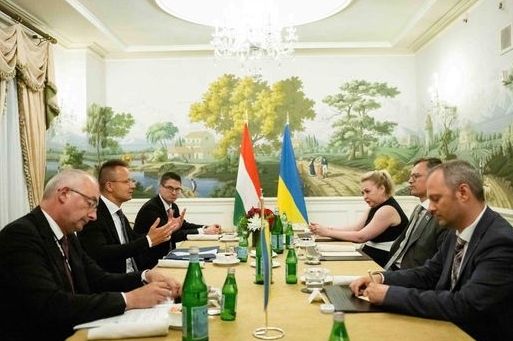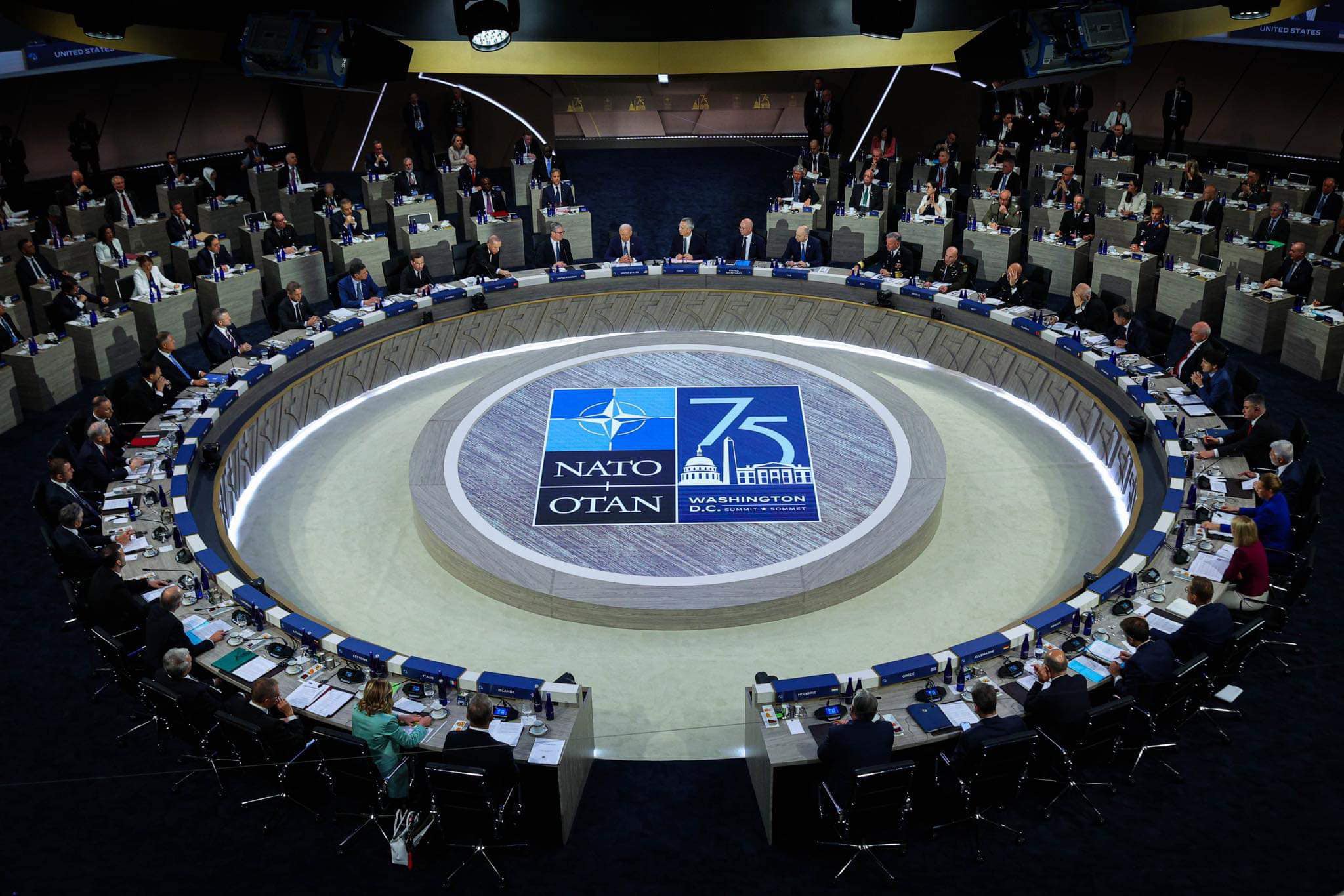
There are more and more weapons, increasing war propaganda, and a serious danger of escalation.Continue reading

It is clear to everyone that Ukraine’s membership of NATO is still not a realistic option, as it would entail the risk of direct confrontation with Russia, Minister of Foreign Affairs and Trade Péter Szijjártó said in Washington on Wednesday.
Commenting on the NATO summit, the Minister noted that “they are trying to present Ukraine’s approach to NATO in a way that everyone in their right mind knows that membership is out of the question.”
“Let us think about the fact that if Ukraine were admitted to NATO, we would effectively be living under a constant, open and extremely dangerous threat of war, because Ukraine’s membership of NATO would foreshadow a direct confrontation between NATO and Russia,” he added. He said that obviously nobody wants that, but the mainstream suggests that there is a need for closer cooperation.
Mr Szijjártó emphasized that
Hungary was only willing to accept the final declaration of the meeting if it stated that a decision on Ukraine’s possible future accession must be taken unanimously, and that each member state must agree to it.
“Therefore Ukraine’s invitation to NATO will not happen now either, membership is effectively out of the question,” he stressed.
The politician also referred to the commitment that the allies had to increase their defense budget to at least 2% of their gross domestic product (GDP) by 2024, and that 20% of this should be spent on developing the defense industry and the army. He pointed out that this was how the good and reliable allies were measured in the past, how much they contributed to the security of the alliance through their own efforts, how they participated in missions and how much they spent.
“Now they have tried to reorganize the question ‘Who is a good ally?’ so that it is answered in terms of who helps Ukraine a lot.
However, Ukraine is not a member of NATO, and NATO’s security does not depend on how strong Ukraine is, but on how strong we are,”
Péter Szijjártó highlighted. He added that, according to official information, 23 of the 32 member states are currently meeting the 2% target (Hungary for the third year in a row), but “scratching the surface a little,” some of them seem to include the value of the weapons they have given to Ukraine in this figure, while it does not strengthen the collective security of the organization.
“So it is also a kind of hypocrisy, because NATO’s strength, NATO’s defense capability depends on its own strength, not on Ukraine’s strength, because NATO is not an offensive alliance, it is a defensive alliance, which was created to defend ourselves from external attacks,” he stated. He also recalled that Hungary ranks second in NATO in terms of the 20% commitment within the 2% target, as Hungary spends 48% of its defense budget on the development of defense forces and defense industry.
The Minister stressed that
Hungary, as a reliable ally, would continue to focus on ensuring that NATO is strong and does not drift into the war in Ukraine.
In the latter respect, he described as dangerous the pending decision to launch a mission to support Ukraine and coordinate arms supplies and military training. “We have concluded a clear agreement here, and the current and the future secretary-general have undertaken to make this binding on themselves: no Hungarian soldiers will take part in such an operation, Hungary’s territory may not be used for such operations, and Hungarian budgetary resources may not be used for this purpose,” he emphasized.
In addition, Hungary is also excluded from the long-term financing fund for Ukraine. “I think this is dangerous not only because it is an awful lot of money, but also because of the approach. If someone sets up a long-term financing plan for a war, it follows that they think it will last for a long time, and that is the problem,” the Minister concluded.
Via MTI; Featured image via Facebook/Szijjártó Péter